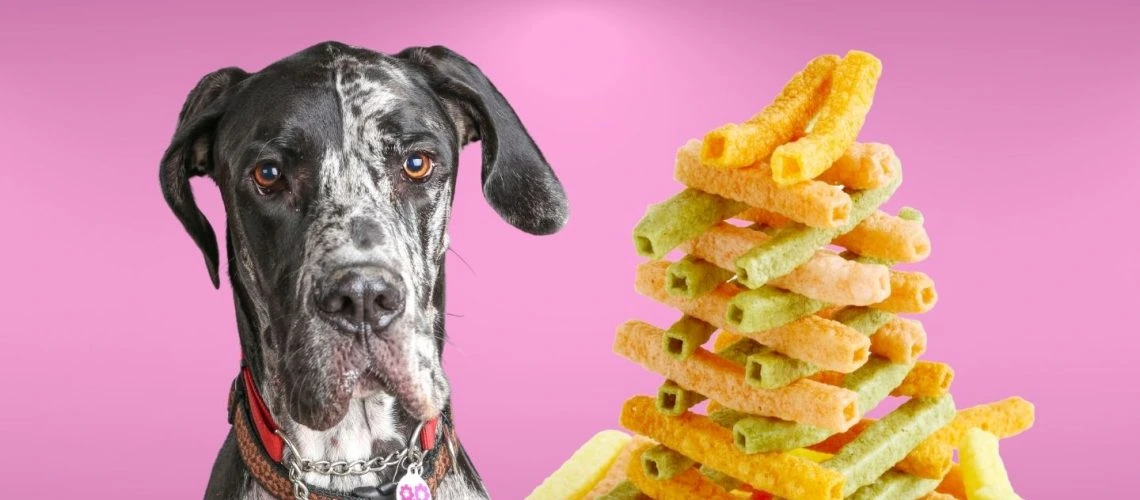Dog owners frequently give their pets snacks from their own plates. One such snack, veggie straws, has become popular as a marketed “healthier” substitute for potato chips.
This article explores whether veggie straws are safe for dogs, outlines the risks, and shares essential information for owners considering giving this snack to their pets.
What Are Veggie Straws?
Veggie straws are made mainly from potatoes, carrots, and spinach, which are processed before frying or baking into a crispy snack. Their nutritional value varies depending on the brand and ingredient composition.
Key components include:
-
Vegetable powders used for flavor and color, but with little nutritional value compared to fresh vegetables.
-
Potato starch as the base, providing crunch but minimal nutrition.
-
Seasonings such as salt, artificial flavorings, and preservatives.
-
Oil frying, which increases calorie content and makes them less healthy.
Are Veggie Straws Safe for Dogs?
Veggie straws are not toxic, but they are not nutritious either. Moderation is essential.
Pros
-
Contain mostly non-toxic ingredients, unlike foods dangerous to dogs such as chocolate, onions, or grapes.
-
Crunchy texture appeals to dogs that enjoy chewing.
Cons
-
High salt content can lead to excessive thirst, urination, or even sodium ion poisoning if eaten in large amounts.
-
Minimal nutritional value compared to real vegetables.
-
High calorie content from frying contributes to weight gain and obesity.
-
Oil and seasoning may cause digestive upset, such as diarrhea or stomach discomfort.
What to Do If Your Dog Eats Veggie Straws
-
Monitor your dog for signs of gastrointestinal issues such as vomiting, diarrhea, or lethargy.
-
Ensure access to fresh water, as salty snacks increase the need for hydration.
-
Contact your veterinarian if your dog shows concerning symptoms or consumes a large quantity.
Healthier Snack Alternatives for Dogs
-
Fresh vegetables: carrots, cucumber slices, green beans.
-
Fruits: apples without seeds, blueberries, bananas (in moderation due to sugar).
-
Commercial dog treats: choose reputable brands using natural ingredients that meet nutritional standards.
-
Homemade treats: peanut butter (without xylitol), pumpkin, and whole wheat flour can be used to make safe snacks at home.
Final Thoughts
Dogs can eat veggie straws in very small amounts without immediate harm, but they should not be treated as a nutritious snack. High sodium, low nutritional value, and potential digestive issues make them a poor choice.
Offer veggie straws only rarely, and instead focus on healthier alternatives that promote long-term wellness. For any questions about diet, consult your veterinarian to ensure your dog receives the best nutrition.


